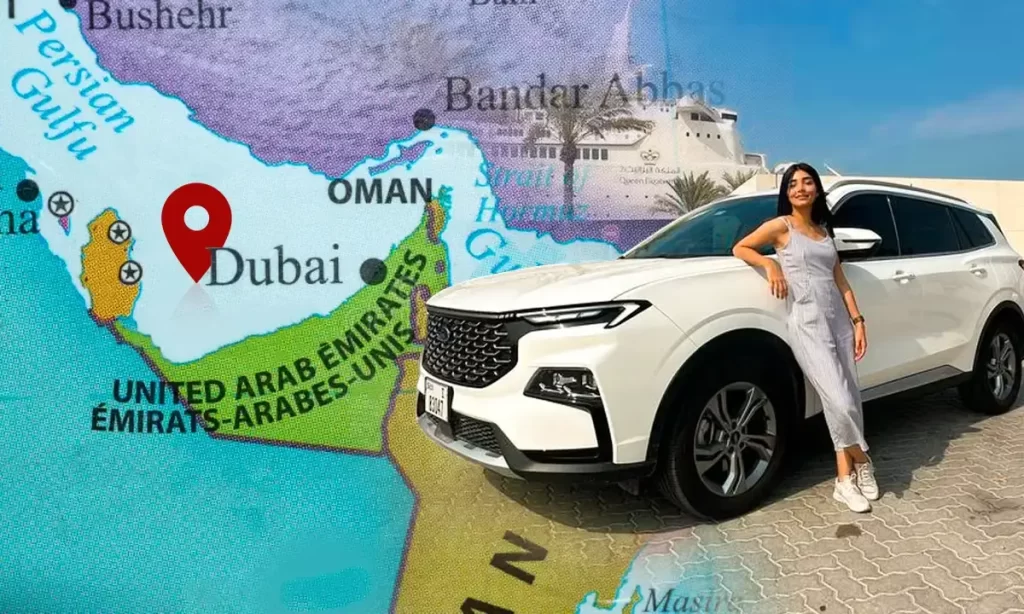During a trip to Dubai, tourists can indulge in a plethora of amenities, from exploring ancient landmarks juxtaposed with modern skyscrapers to visiting lush parks and endless desert dunes for camel rides and safaris. Immersing in traditional celebrations and Arab customs offers a deeper cultural experience, while participation in international exhibitions adds an exciting dimension to the journey. Dubai seamlessly blends Islamic traditions with Western modernization, making it a coveted destination for Asians, Europeans, and even Americans seeking an extraordinary and captivating travel experience. This article aims to provide essential information for those planning a trip to Dubai so stay with us to the end.
A Quick Look at Dubai History
Dubai, the cultural capital of the United Arab Emirates, is located in the Arabian Peninsula, and the city of Abu Dhabi is the main capital of the UAE. Dubai is located in the south of the Persian Gulf, the southeast of the Arabian Sea, the northeast of Oman, and the north of Saudi Arabia. As the tourism capital of the United Arab Emirates, Dubai houses many economic centers, government ministries, international trade centers, old and new libraries, and unique tourist sights.
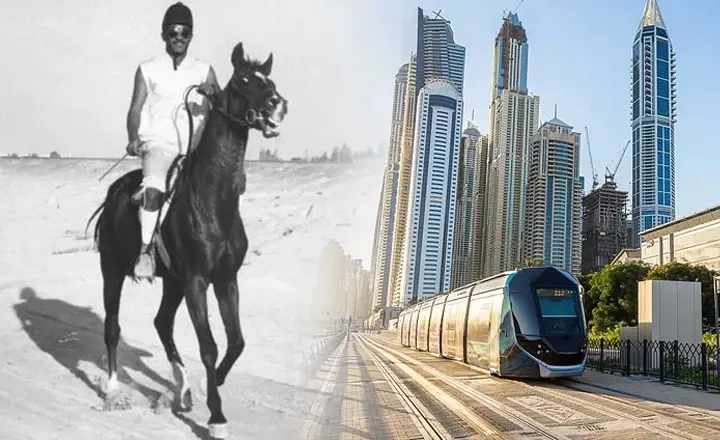
Under the leadership of Sheikh Rashid bin Saeed Al Maktoum and later his son Sheikh Mohammed bin Rashid Al Maktoum, Dubai embarked on an ambitious program of infrastructure development. The construction of Jebel Ali Port, Dubai International Airport, and the World Trade Centre were key projects. Dubai diversified its economy beyond oil, focusing on trade, tourism, aviation, real estate, and financial services. Iconic projects like the Burj Khalifa, Palm Jumeirah, and Dubai Mall put Dubai on the global map as a leading tourist destination. Today, Dubai is known for its skyscrapers, luxury shopping, vibrant nightlife, and as a global hub for business and tourism. It hosts numerous international events, such as the Dubai World Cup and the Dubai Shopping Festival, attracting millions of visitors annually.
What is the Best Time to Visit Dubai?
The best time to visit Dubai is during the cooler months from November to March. This period offers pleasant weather, making it ideal for sightseeing, outdoor activities, and enjoying the city’s many attractions. Here’s a detailed breakdown of what you can expect during these months.
November to March: The Ideal Season
Daytime temperatures range from 20°C to 30°C, while evenings are cooler, with temperatures between 15°C and 20°C during this period in Dubai. Lower humidity levels make the weather more comfortable compared to the sweltering summer months. As a result, this is the perfect time for desert safaris, beach outings, and exploring outdoor markets like the Gold and Spice Souks. Pleasant weather conditions make visiting iconic landmarks like the Burj Khalifa, Dubai Marina, and Palm Jumeirah enjoyable. Outdoor attractions such as the Miracle Garden are also in full bloom. This period is the peak tourist season, so expect larger crowds at popular attractions and higher prices for flights and accommodation. It’s advisable to book well in advance.
April to October: The Hot Season
Daytime temperatures can soar to between 35°C and 45°C, with June to September being particularly hot. High humidity levels can make the heat feel even more intense. Due to the extreme heat, this period is ideal for visiting indoor attractions such as the Dubai Mall, the Dubai Aquarium, and indoor theme parks like IMG Worlds of Adventure. Although it’s hot, water parks such as Aquaventure and Wild Wadi Waterpark, as well as hotel pools, provide a fun way to cool off. Additionally, Dubai Summer Surprises offers significant shopping discounts, making it an attractive period for bargain hunters. The extreme heat deters many tourists, resulting in fewer crowds. This can be a good time to visit if you prefer a quieter experience. Hotels and flights are generally cheaper, and there are often special offers and discounts available.
Special Considerations
Ramadan: The Islamic holy month of Ramadan affects the daily life in Dubai. While it’s a unique cultural experience, visitors should be aware of daytime fasting rules, with many restaurants closed during the day. However, evenings come alive with Iftar celebrations.
Public Holidays: Be mindful of public holidays like National Day (December 2) and Eid, which can lead to crowded attractions and higher prices.
Transportation in Dubai
Dubai boasts an extensive and modern transportation network that caters to the needs of both residents and visitors. Here’s a detailed overview of the various modes of transportation available in Dubai. One of the concerns of many tourists who travel for the first time is the lack of familiarity with Dubai’s public transportation system. So we dedicated this part of the travel guide to Dubai with all the vehicles available in Dubai.
Metro in Dubai
The Dubai Metro is a state-of-the-art, fully automated, driverless rail network that serves as a backbone for public transportation in Dubai. It is known for its efficiency, cleanliness, and convenience, providing a reliable mode of transport for residents and tourists alike. Dubai Metro includes two lanes; the Red Line and the Green Line. The Red Line runs from Rashidiya to UAE Exchange, passing through key areas such as Deira, Bur Dubai, Sheikh Zayed Road, and Jebel Ali. The Red Line’s notable stations include Dubai International Airport Terminal 1 and Terminal 3, Burj Khalifa/Dubai Mall, Mall of the Emirates, and Jumeirah Lakes Towers. The Green Line runs from Etisalat to Creek, serving areas such as Al Qusais, Al Twar, Deira, and Bur Dubai. The Green Line’s notable stations include Al Rigga, Union (which is an interchange with the Red Line), Al Fahidi, and Al Ghubaiba. Dubai Metro typically operates from 5:00 AM to midnight and extended hours on Thursdays and Fridays, running until 1:00 AM. We recommend you check the Dubai Metro schedule before using it.
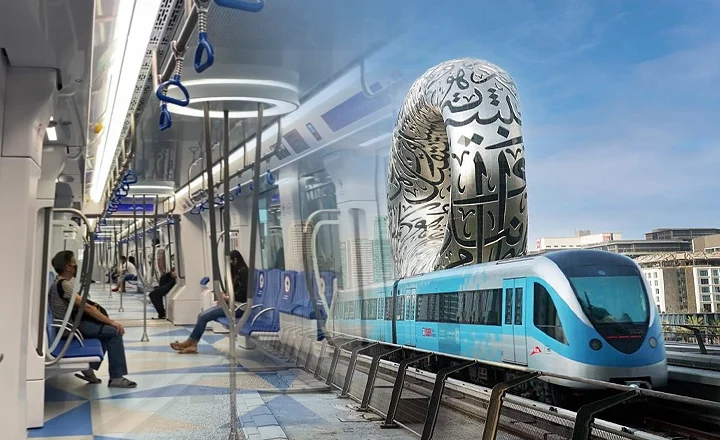
Taxis in Dubai
Taxis in Dubai offer a reliable, safe, and convenient transportation option, catering to various needs and preferences. Whether you’re traveling from the airport, exploring the city, or seeking a premium ride, Dubai’s well-regulated taxi system ensures a comfortable journey. With multiple booking options and transparent fare structures, getting around Dubai by taxi is straightforward and user-friendly. Using apps like Careem or Uber can make booking more convenient and allow for cashless payment. Ensure the meter is running and be aware of the fare structure to avoid overcharging.
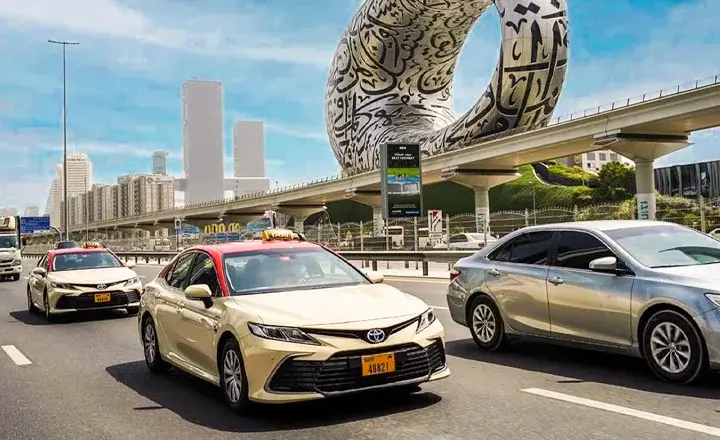
Buses in Dubai
Dubai’s bus network comprises over 1,500 buses operating on more than 150 routes, ensuring comprehensive coverage throughout the city and beyond. Key routes connect major residential areas, commercial hubs, and tourist destinations, facilitating easy access to places like Downtown Dubai, Dubai Marina, Deira, and Jumeirah. The bus system also integrates seamlessly with other modes of public transport, including the Dubai Metro and Tram, providing a cohesive and interconnected transit network.
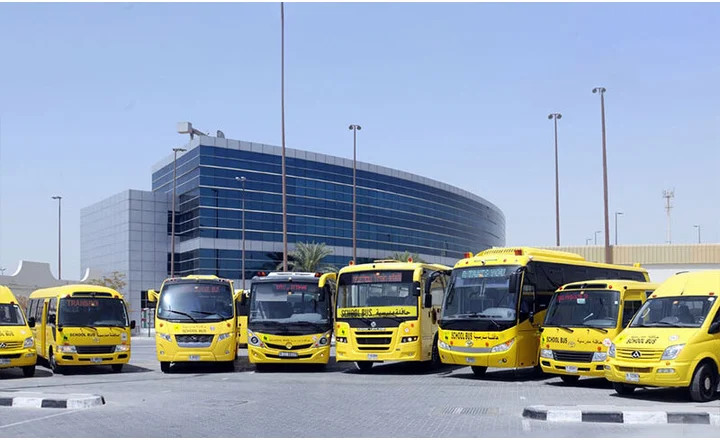
Tram in Dubai
The Dubai Tram operates along a 10.6-kilometer route with 11 stations strategically located to serve high-density residential and commercial areas. The route begins at the Al Sufouh area and runs through Dubai Marina, JBR, and Media City, ending at the tram depot. Key stops include popular destinations such as Dubai Marina Mall, Jumeirah Beach Residence, and Knowledge Village. The tram system enhances connectivity in these bustling districts, reducing traffic congestion and providing a reliable travel alternative.
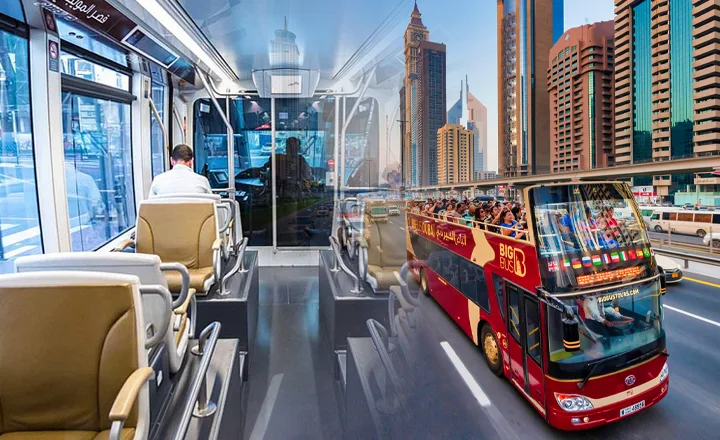
Rental Vehicles in Dubai
Dubai’s car rental agencies provide an extensive selection of vehicles, ranging from compact economy cars, ideal for budget-conscious travelers, to luxury sedans and sports cars for those seeking a more premium experience. To rent a car in Dubai, drivers must present a valid driving license. Tourists typically need an International Driving Permit (IDP) alongside their home country’s license, while residents use their UAE driving license. Renters must also provide a valid passport or Emirates ID and a credit card or a cash guarantee for the security deposit. The minimum age for renting a car is generally 21, but some agencies may require drivers to be 25 or older for specific vehicle categories.
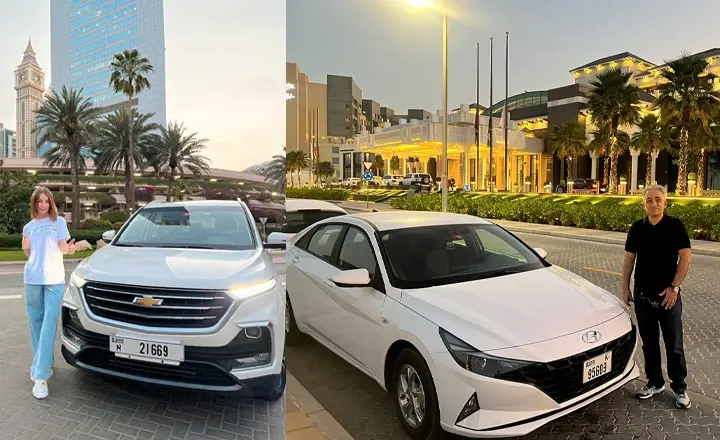
Nol Cards in Dubai for Public Transportation
The Nol Card is a smart card used for fare payment across all public transport modes in Dubai, including the Metro, buses, trams, and water buses. Various Nol Cards are available, including the Red Ticket for occasional travelers, and the Silver, Gold, and Blue Cards for regular users. Fares are calculated based on the number of zones traveled. The Nol Card system automatically deducts the fare upon exit.
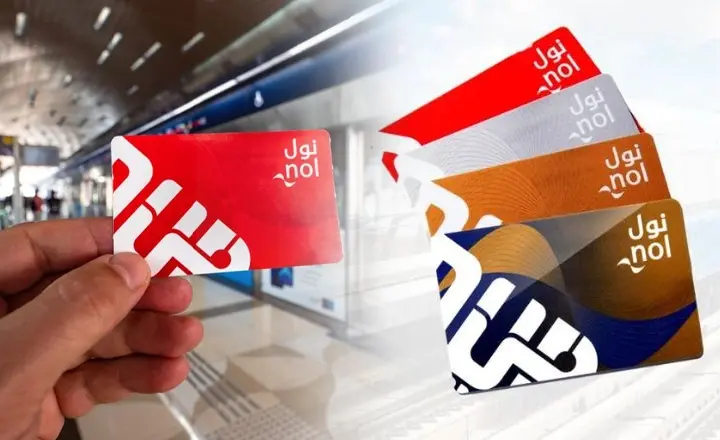
Water Transportation in Dubai
Dubai’s water transportation system offers a unique and scenic alternative for navigating the city, complementing its extensive land-based public transport network. Managed by the Roads and Transport Authority (RTA), the water transport options include traditional Abras, modern water buses, water taxis, and the Dubai Ferry. These services enhance connectivity, reduce road traffic congestion, and provide a distinctive travel experience along Dubai’s iconic waterways.
Abras in Dubai
Abras are traditional wooden boats that have been a part of Dubai’s heritage for centuries. They provide a quick and affordable way to cross Dubai Creek, connecting the historic districts of Deira and Bur Dubai. There are two main types of abras: the motorized abra, which operates on a fixed schedule, and the rowing abra, which offers a more leisurely ride. The motorized Abras run frequently throughout the day, making them a popular choice for both locals and tourists. The journey is short, usually around 5 to 10 minutes, and costs only 1 AED per trip, offering a glimpse into Dubai’s traditional modes of transport.
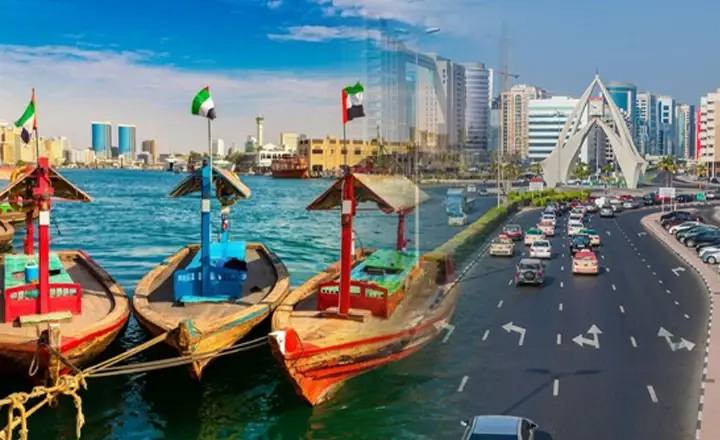
Water Buses in Dubai
Water buses offer a more modern and comfortable alternative to Abras, with air-conditioned cabins and scheduled services. They operate along Dubai Creek and the Dubai Marina, connecting key locations such as Al Seef, Dubai Festival City, Marina Mall, and Jumeirah Beach Residence. Water buses are designed to provide easy accessibility for passengers with disabilities and strollers, ensuring convenience for all users. The fares for water buses are slightly higher than Abras, reflecting the enhanced comfort and amenities.
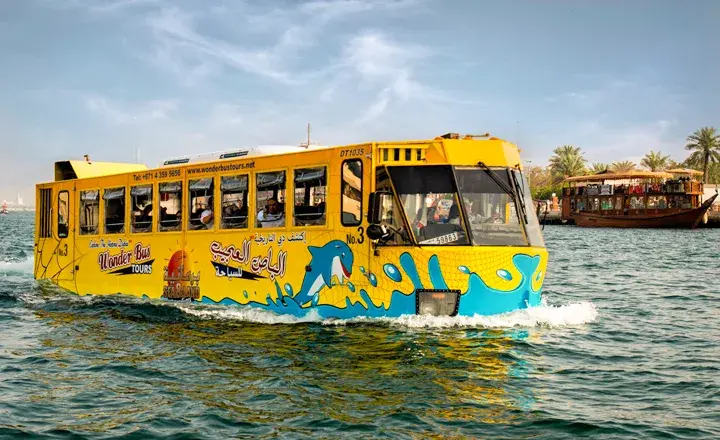
Dubai Ferry
The Dubai Ferry offers a scenic and leisurely travel option with routes covering the coastline and providing panoramic views of Dubai’s skyline. The ferry services operate from several key locations, including Dubai Marina, Al Ghubaiba, Dubai Canal Station, and Sheikh Zayed Road Station. The ferry routes connect major tourist attractions such as the Burj Al Arab, Palm Jumeirah, and the Dubai Canal, making it an excellent choice for sightseeing tours. The ferries are equipped with comfortable seating, restrooms, and refreshment services, enhancing the travel experience.
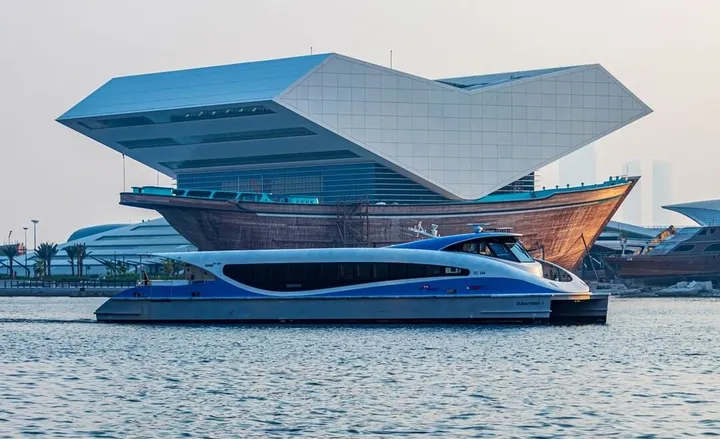
Accommodation in Dubai
Accommodation in Dubai offers a diverse and extensive range of options, catering to various budgets and preferences. From luxurious five-star hotels to budget-friendly hostels, Dubai’s hospitality sector is designed to provide comfort, convenience, and exceptional service to all its visitors.
Luxury Hotels and Resorts
Dubai is renowned for its opulent luxury hotels and resorts, many of which are architectural marvels offering world-class amenities and unparalleled service. Iconic properties such as the Burj Al Arab, often touted as the world’s only seven-star hotel, and the Atlantis, The Palm, known for its water park and aquarium, epitomize luxury and extravagance. These hotels offer lavish rooms and suites, fine dining restaurants, private beaches, spas, and a host of recreational activities, making them ideal for those seeking a premium experience.
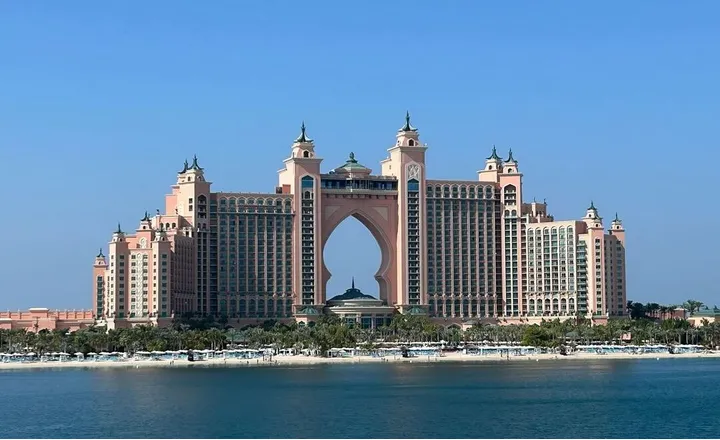
Mid-Range Hotels
For travelers looking for comfort and quality without the hefty price tag of luxury resorts, Dubai has a wide selection of mid-range hotels. These properties, often located in central areas like Downtown Dubai, Al Barsha, and Dubai Marina, offer excellent facilities such as swimming pools, fitness centers, and on-site dining options. Popular international chains such as Hilton Garden Inn, Four Points by Sheraton, and Novotel cater to both business and leisure travelers, providing a balance of affordability and convenience.
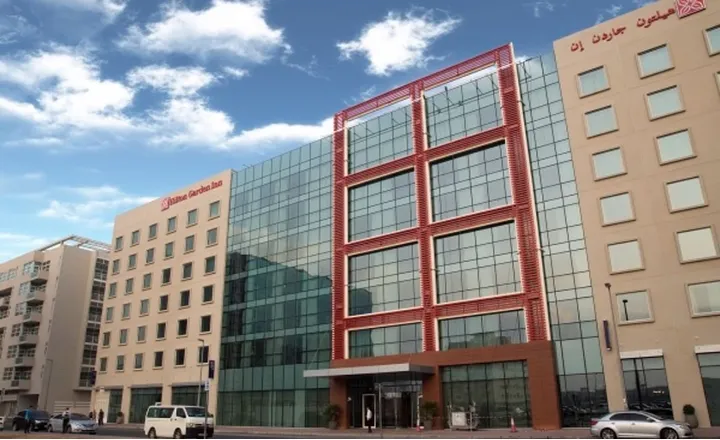
Budget Hotels and Hostels
Dubai also caters to budget-conscious travelers with a variety of affordable hotels and hostels. Budget hotels can be found in areas like Deira and Bur Dubai, offering clean, comfortable accommodations at lower prices. Hostels, such as the Dubai Youth Hostel and numerous boutique hostels, provide dormitory-style lodging and communal spaces, ideal for backpackers and solo travelers. These budget options ensure that visitors can enjoy Dubai without breaking the bank.
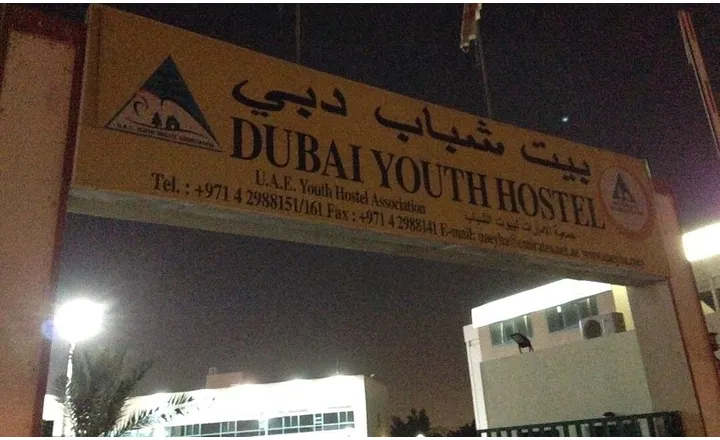
Vacation Rentals
Vacation rentals, including Airbnb, have gained popularity in Dubai, offering a variety of private apartments, villas, and homes for short-term stays. These rentals provide greater privacy and flexibility, making them ideal for families and groups. They are available in various parts of the city, from beachfront properties on the Palm Jumeirah to urban apartments in Downtown Dubai, catering to diverse preferences and budgets.
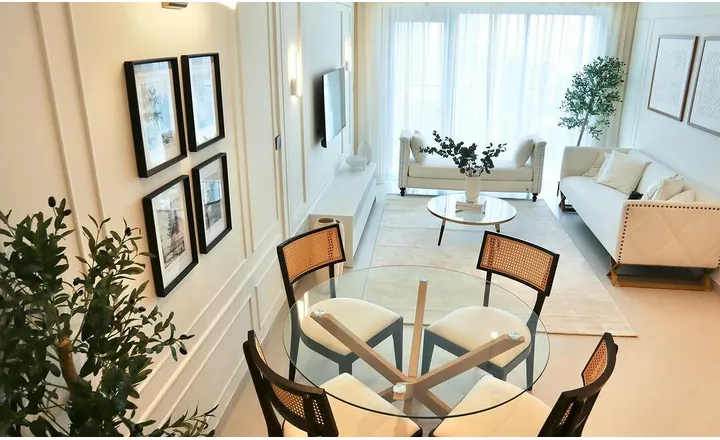
Dining in Dubai
Dubai’s dining scene is a vibrant and diverse reflection of the city’s multicultural population, offering a culinary journey that caters to every palate and preference. From street food stalls and casual eateries to fine dining establishments and celebrity chef restaurants, Dubai’s gastronomic landscape is rich and varied.
International Cuisine
Reflecting its cosmopolitan character, Dubai boasts a wide variety of international cuisines. Whether you’re craving Italian pasta, Indian curries, Chinese dim sum, or American burgers, you’ll find numerous restaurants serving authentic dishes from around the world. Areas like Jumeirah Beach Residence (JBR), Downtown Dubai, and Dubai Marina are particularly known for their eclectic mix of dining options, featuring eateries that cater to diverse culinary tastes. This international diversity ensures that expatriates and tourists can enjoy familiar flavors while also exploring new culinary horizons.

Middle Eastern and Emirati Cuisine
While Dubai offers a global dining experience, it also provides ample opportunities to savor traditional Middle Eastern and Emirati cuisine. Local dishes such as shawarma, hummus, falafel, and machboos (a spiced rice dish with meat or fish) can be found in many restaurants and street food stalls across the city. Al Fanar Restaurant and Café and Arabian Tea House are popular spots to experience authentic Emirati food in a setting that reflects the UAE’s heritage. These establishments offer a taste of the region’s rich culinary traditions, blending aromatic spices and fresh ingredients.

Casual Dining and Street Food
For those seeking more casual dining experiences, Dubai’s street food and casual eateries offer a wide range of affordable and delicious options. Food trucks, like those at Last Exit and Kite Beach, serve gourmet burgers, tacos, and other street food favorites. The city’s many food courts and fast-casual restaurants, found in malls and public areas, provide quick and tasty meals for those on the go. Dishes like manakish (a type of flatbread), kebabs, and Indian snacks like samosas and pakoras are popular street food choices that offer great flavor without a high price tag.
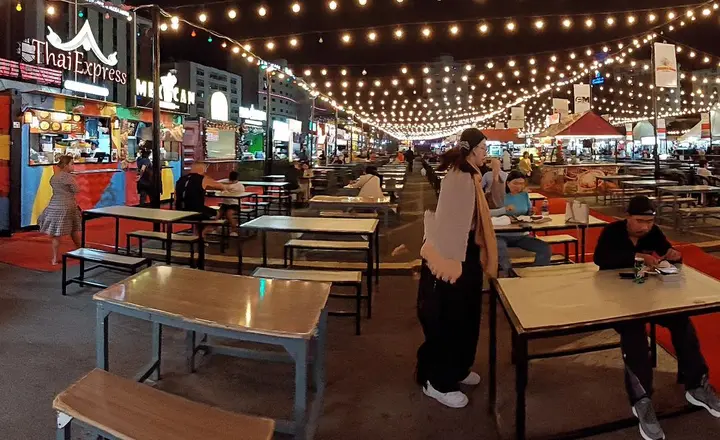
Vegan and Healthy Eating
Dubai’s dining scene also caters to health-conscious diners and those with dietary restrictions. Numerous restaurants and cafes offer vegan, vegetarian, gluten-free, and organic options. Places like Wild & The Moon, SEVA Table, and Common Grounds are known for their nutritious and wholesome menus, featuring plant-based dishes and fresh, locally sourced ingredients. The growing emphasis on healthy eating reflects Dubai’s commitment to catering to diverse dietary needs and preferences.
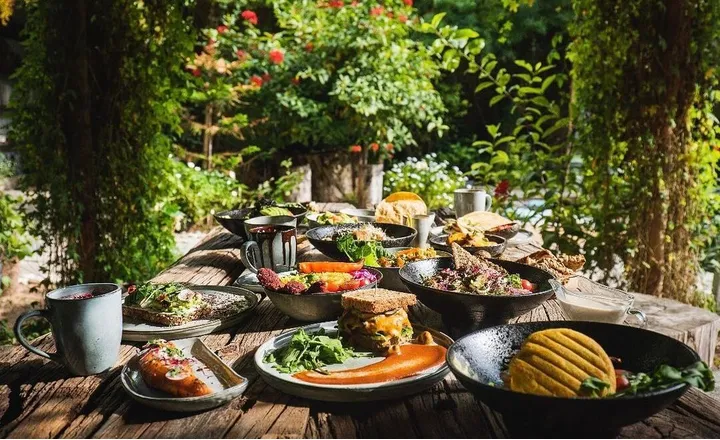
Top Places to Visit in Dubai
- Burj Khalifa
- The Dubai Mall
- Palm Jumeirah
- Dubai Marina
- The Dubai Fountain
- Dubai Creek and Al Fahidi Historical Neighborhood
- Jumeirah Beach
- Global Village
- Dubai Miracle Garden
- Ski Dubai
- The Dubai Frame
- Dubai Opera
- The Green Planet
- Dubai Safari
Dubai’s Currency
The currency of Dubai is the United Arab Emirates dirham, commonly abbreviated as AED (Arab Emirate Dirham) and symbolized as د.إ or DH. The dirham is the official currency of the United Arab Emirates (UAE) and is issued by the Central Bank of the UAE.
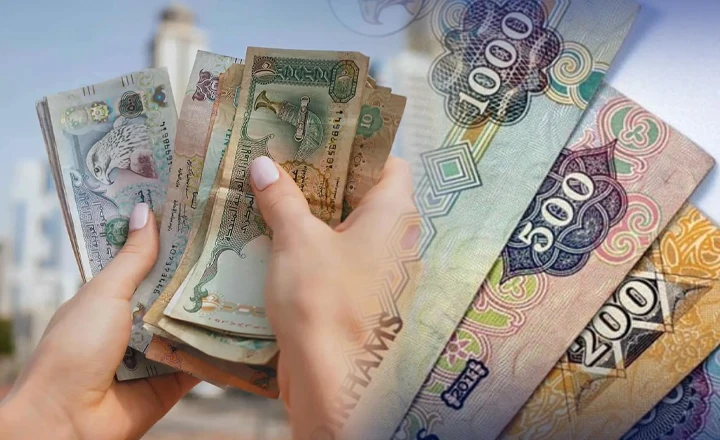
Denominations
The dirham is subdivided into 100 fils. The currency is available in both coin and banknote forms. The coin denominations include 1, 5, 10, 25, 50 fils, and 1 dirham, although the 1, 5, and 10 fils coins are rarely used in daily transactions. The banknotes are available in denominations of 5, 10, 20, 50, 100, 200, 500, and 1000 dirhams. The banknotes feature various designs that reflect the UAE’s heritage, culture, and landmarks, such as the Burj Khalifa and the Sheikh Zayed Grand Mosque.
Exchange Rates
The UAE dirham is pegged to the US dollar, with a fixed exchange rate of approximately 3.67 AED to 1 USD. This peg provides stability and predictability for businesses and travelers, facilitating international trade and investment. Exchange rates with other currencies fluctuate based on global market conditions.
Emergency Numbers in Dubai
- Dubai Phone Number Code: 971
- Police Phone Number in Dubai: 999
- Fire Department in Dubai: 997
- Dubai medical emergency number: 998
Last Words
Dubai is a city that offers a captivating blend of modernity and tradition, making it an ideal travel destination for a diverse range of interests. Its efficient public transportation, world-class dining, and diverse accommodation options further enhance its appeal. Whether you’re seeking adventure in the desert, relaxation on pristine beaches, or an exploration of vibrant markets and opulent landmarks, Dubai promises an unforgettable experience. This travel guide highlights the city’s unique offerings, ensuring visitors can make the most of their stay in this extraordinary metropolis. Dubai’s charm lies in its ability to seamlessly integrate its rich heritage with cutting-edge innovations, creating a truly unique travel experience.
